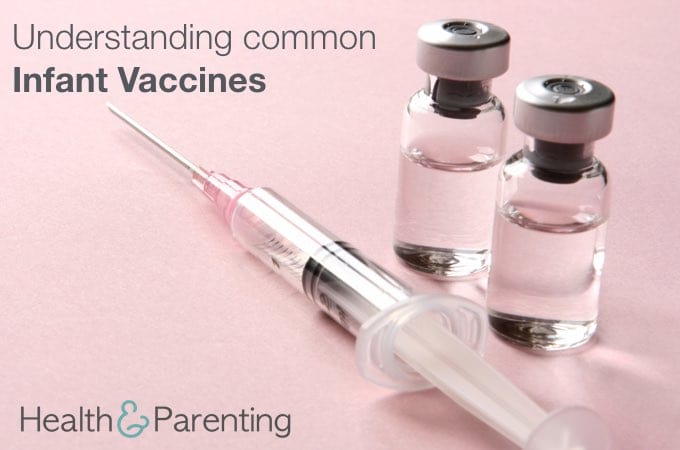When it comes to getting your baby vaccinated, everyone has an opinion. While some parents opt for all available immunizations, others choose vaccines they feel are essential or decide against all immunizations. Before making a decision, it’s important to discuss it with your pediatrician. It’s also helpful to understand vaccine basics and which vaccines are the most common during your baby’s first year.
The purpose of a vaccine is to cause an immune response without making your baby sick. The vaccine allows your baby to produce antibodies, which help protect him from the illness.
It’s also good to remember that perhaps the most important health invention in history, vaccines, are a victim of their success. Vaccines are so effective, they take diseases like measles away, that we easily forget that those diseases are dangerous. Roald Dahl’s letter to Sophie is a good reminder that measles can be a dangerous illness. Roald Dahl’s Love Letter to His Lost Daughter
Immunization recommendations and schedules may vary by country and whether your baby has any underlying medical conditions. Some of the vaccines may also require more than one dose. It’s best to talk with your pediatrician for specifics. Although not a complete list, below are some common vaccines that your doctor may recommend.
DTaP: This vaccines protects against three different diseases including tetanus, diphtheria and whooping cough. Tetanus can cause painful spasms of the jaw and neck and can interfere with breathing. Diphtheria is a bacterial infection that can lead to swelling of the mucous membranes and also makes breathing difficult. Whooping cough is an infection of the respiratory tract and can be especially serious in babies.
Rotavirus Vaccine: The rotavirus is a common cause of vomiting and diarrhea in babies and can lead to severe dehydration. In the United States, the vaccine is given orally instead of a shot.
Measles, Mumps and Rubella Vaccine (MMR): All three conditions can cause a fever and rash and can lead to dangerous complications, such as pneumonia and meningitis.
Varicella Vaccine: The varicella vaccine protects against chickenpox, which causes fever and itchy blisters. Complications of chickenpox can include pneumonia and bacterial skin infections.
Meningococcal Conjugate Vaccine: This vaccine protects against meningococcal infections, which can cause bacterial meningitis. Meningitis is an inflammation of the membranes lining the spinal cord and brain. It can lead to serious complications, such as brain damage, loss of limbs and can be life-threatening.
Polio Virus Vaccine: Polio was once a widespread epidemic that caused paralysis and was sometimes fatal. The disease has been widely eradicated due to the vaccine, but still exists in certain parts of the world.
Before any immunization, it’s important to ask if your baby is healthy enough to receive the vaccine. If your little one is ill, it is best to wait until he feels better before getting vaccinated to prevent any complications. As always, ask your doctor if you have any concerns.
Different immunizations may have side effects. Common side effects include redness and soreness at the injection site, fever and fussiness. Before any immunization, ask your doctor what side effects are common and discuss any concerns you have. When it comes to your baby’s health, there are never too many questions.
Written by MaryAnn DePietro @ writerlady34
This information is not intended to replace the advice of a trained medical doctor. Health & Parenting Ltd disclaims any liability for the decisions you make based on this information, which is provided to you on a general information basis only and not as a substitute for personalized medical advice. All contents copyright © Health & Parenting Ltd 2016. All rights reserved.










